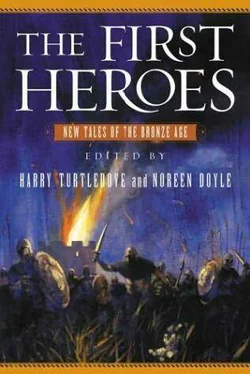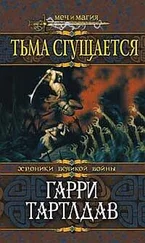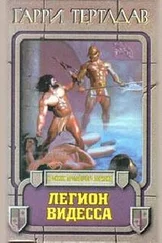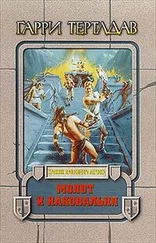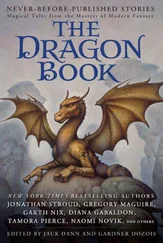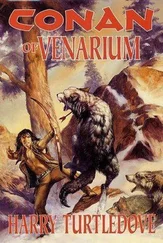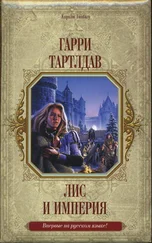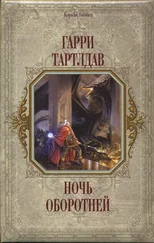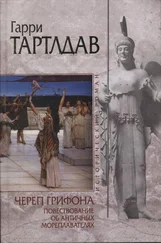Гарри Тертлдав - The First Heroes
Здесь есть возможность читать онлайн «Гарри Тертлдав - The First Heroes» весь текст электронной книги совершенно бесплатно (целиком полную версию без сокращений). В некоторых случаях можно слушать аудио, скачать через торрент в формате fb2 и присутствует краткое содержание. Жанр: Фантастика и фэнтези, на английском языке. Описание произведения, (предисловие) а так же отзывы посетителей доступны на портале библиотеки ЛибКат.
- Название:The First Heroes
- Автор:
- Жанр:
- Год:неизвестен
- ISBN:нет данных
- Рейтинг книги:3 / 5. Голосов: 1
-
Избранное:Добавить в избранное
- Отзывы:
-
Ваша оценка:
- 60
- 1
- 2
- 3
- 4
- 5
The First Heroes: краткое содержание, описание и аннотация
Предлагаем к чтению аннотацию, описание, краткое содержание или предисловие (зависит от того, что написал сам автор книги «The First Heroes»). Если вы не нашли необходимую информацию о книге — напишите в комментариях, мы постараемся отыскать её.
The First Heroes — читать онлайн бесплатно полную книгу (весь текст) целиком
Ниже представлен текст книги, разбитый по страницам. Система сохранения места последней прочитанной страницы, позволяет с удобством читать онлайн бесплатно книгу «The First Heroes», без необходимости каждый раз заново искать на чём Вы остановились. Поставьте закладку, и сможете в любой момент перейти на страницу, на которой закончили чтение.
Интервал:
Закладка:
They led to the plain of Sega.
Here stood a small fort the height of four men, its merlons biting the sky like teeth. The bricks were new, forming plumb-straight faces violated only on the northern side, by a single doorway. Acaciawood planks, hewn smooth and joined tight, fit between thick jambs no battering ram had ever rattled. With a noise like thunder, that door was now barred shut from within.
Ankhtifi stared at the wood and the brick. Not so much as a hair of a soldier, not the tip of an arrow, peered down over the walls at them.
"I am Ankhtifi the Brave! Who among you will challenge me?"
No one answered.
"Who will come out to fight me and my trustworthy troops?"
No one answered.
Ankhtifi brought forward those who had axes and they beat at the door, but it was so well-barred that they could not break it.
No one answered.
So began the siege.
Ankhtifi's troops camped outside the walls, beyond bow-shot, beyond the range of a slingstone. Evening came and their campfires burned, and they could smell the fire and see the smoke rise from behind the walls of Sega. As he stood on a rise and surveyed the little plain and the fortress he thought he saw the falcon. Perfume carried on the night air and there was something in the dark.
"My lord?"
A great cackle, an enormous flap of wings—
"My lord?"
A goose flew up from the river, near enough that its wing brushed the top of Ankhtifi's head as he threw himself to the ground. He whispered, "My lord?" No one answered. He went back to his campfire and lay on his side, even as he imagined the King, lying on a golden bed in the Residence, sleepless through the night.
For ten days they camped at Sega, and for ten days they heard men behind the walls, smelled bread at the cook-fires, saw the smoke rise after dark, and heard the cackle of a goose. On third evenings Ankhtifi left khenmet-loaves and a foreleg, the latter wrapped in linen against the flies. Although the falcon never spoke to Ankhtifi at Sega, each of those mornings these were gone, only stained linen wrappings strewn about the ground.
Each morning the men of Edfu, and each afternoon the men of Nekhen, scaled the walls, one atop another's back because they had no ladder, and each time they were repelled by Antef's men, though none ever could claim to have seen their weapons or their faces.
Idy said, "So much do they fear you that they dare not show even their noses!"
Three times Ankhtifi walked around the walls, seeing only his own shadow cast upon the bricks. West, south, east, north, there upon each face stood Ankhtifi's shadow.
His shadow was so strong that it cast itself upon all of Sega! Did those within the wall not realize this? Or perhaps they did, and were seized with the terror of it.
"Bring out your goose and wring its neck before me!" Ankhtifi cried before the door of Sega, raising his ax as his shadow did likewise. "Do honor to Horus and to your King! Come out!
Wring its neck! Roast it! We will feast together and then decide who will fight Ankhtifi the Brave!"
A goose cackled. Like laughter. Noise from the throat that would not be strangled.
Negeg-negeg-negeg.
The troops of Nekhen and Edfu began to array themselves around the fort of Sega, drawn closer by Ankhtifi's agitation. He directed them to bring the boats spars and rigging, which they fashioned into ladders that could be quickly climbed by two men abreast. Ahead of his troops, Ankhtifi would ascend one and, at his signal, the soldiers would scale the rest. They would clear the wall, they would defeat Antef's men, and Ankhtifi himself would strangle the goose and offer it to the falcon with two khenmet-loaves.
Idy climbed the rungs beside his father but Ankhtifi proceeded to the top alone. "They fear you," Idy cried from below, echoed by the troops waiting at their ladders. They will drop dead the moment your face appears at the height of their wall!"
Ankhtifi looked over the wall of Sega.
And he slid down again, throwing his troops into confusion and chaos.
"Go!" he yelled to his men. "To the east and to the west, apart from Sega, find those who will fight you! Find them, find them and know that if they do not come out, if they will not fight you, it is through fear. It is not because they are obeying their hidden god! They cannot hide our victory. His trustworthy troops did as he commanded. Like flies they swarmed the district, challenging at every village, at every estate, at every fortification, but no one answered.
And when they gathered again at Sega, before they went home Ankhtifi reaffirmed that it was fear that kept the Thebans behind their walls, because Ankhtifi was a man whose like had never been known before and would never be known again, not for this million of years.
"You have never said, my lord, my father," says Idy, "what you saw beyond the walls of Sega."
No, he never has. Ankhtifi does not deny it. He wonders if, like the name of Khuu, like the name of the Overseer of Armant, it is something he cannot remember but in this peculiar way because the falcon has made it so. He replies, "I saw the birthplace of languish, the cause of lack, the wellspring of privation."
Hiddenness, like a god who cannot be seen, unrevealable but for the goose that Ankhtifi saw and wished to strangle, laughing from a green field of barley and lentils and lettuce, negeg-negeg-negeg.
When the falcon was not speaking of Antef of Thebes, and he often was not, or of the wonders of the God's-Land, or of how he wished that all his court was as efficient and insightful and brave and trustworthy as Ankhtifi, he spoke of his pygmy from the Horizon-Dwellers. The gods delighted in his dance above all else, the falcon said. Nothing on the earth pleased them nearly so much, and indeed, the falcon himself had loved nothing better. "Not Ipuit, Wedjebten, not even Neith, favorite of my wives. Not even my dear mother or my brother.
"My fiftieth year of kingship came, and I was as an old man, but not as a man who had sat upon the throne for so long. Feebleness was itself weak in my limbs. The pygmy from beyond Yam had taught me what to eat and how to pray and how to sleep and what spells to recite in what hours of the day on what days of the year. I might live forever, I thought. One day the pygmy came to me and asked if he might return home to the Horizon-Dwellers. 'Soon,' I promised, for he had served me well, though thought of his departure filled me with unutterable sadness, such was the depth of my love. Then the royal barber found a white hair growing among the black that he so carefully shaved from my head. I had him let it grow and then pluck it when it was the length of one finger. I showed this white hair to my pygmy. 'No man may live forever,' he said, 'not even the King. From clay our bodies are fashioned, to clay they all decay' When he saw that this did not please me, he said, 'But because I love you, and because you love me, I will teach you how to live again on the earth, after your ha has flown from your body' Over the next ten years he taught me these spells, and I learned them.
"When I had proven to him and to myself that I had learned them beyond forgetfulness, he came to me and again begged to return home to the Horizon-Dwellers. I was loathe to let him go. He had for so long been my friend and my confidant and my teacher! I wished to share eternity with him. His wisdom was boundless; I wished to know all he could teach me. His dances pleased the gods, they pleased me, and I wished that they would do so forever. He told me, wagging one finger, 'I am going to call upon a god. The god will teach you a lesson, a lesson that I myself cannot teach you. Which lesson the god teaches will depend entirely upon which lesson you learn.'
"One night of my eighty-seventh year of kingship, he took me into the desert. He pointed to the sky, and I saw this god of his, a pale streak in the sky. I had seen such things before and shrugged. The pygmy said, 'That is my god. Will you let me return home to the Horizon-Dwellers?' My heart could not bear to let him go. For eighty-five of my years he had been beside me. He was like my shadow; what would I do without him?
Читать дальшеИнтервал:
Закладка:
Похожие книги на «The First Heroes»
Представляем Вашему вниманию похожие книги на «The First Heroes» списком для выбора. Мы отобрали схожую по названию и смыслу литературу в надежде предоставить читателям больше вариантов отыскать новые, интересные, ещё непрочитанные произведения.
Обсуждение, отзывы о книге «The First Heroes» и просто собственные мнения читателей. Оставьте ваши комментарии, напишите, что Вы думаете о произведении, его смысле или главных героях. Укажите что конкретно понравилось, а что нет, и почему Вы так считаете.
